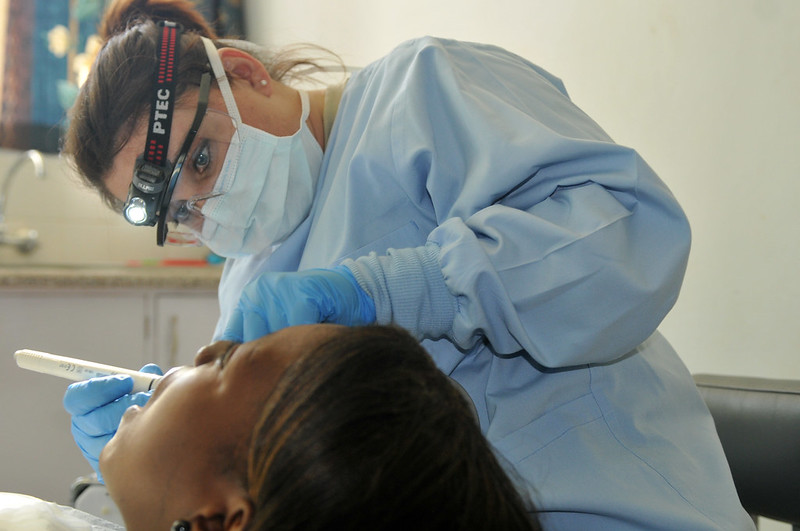A woman in North Carolina went to a dental practice in October 2016 and was told she needed to her a wisdom tooth extracted. The following month in November 2016 the woman had the surgery performed by an oral surgeon in North Carolina. During the procedure the dentist had difficulty and required the assistance of another dentist at the dental practice. Substantial pressure was placed on the woman’s jaw during the surgery. The dentist told the woman after the surgery that a small piece of bone in her jaw had broken during the surgery. However, the dental records of the two dentist for this visit said ” a “[l]arge portion of [the] left maxillary tuberosity fractured off with [the] tooth during extraction . . . “
After the surgery the woman experienced intense pain throughout her face and jaw. She said that she could not open her mouth without pain and was unable to eath without difficulty. Just over a week after the surgery the woman visited the dentist and the dentist told her that it was referred pain and was due to over extending her jaw muscles throughout the long surgery. The woman continued to have pain into December and returned for a second follow-up visit where she was advised to see an oral surgeon. The woman’s condition did not improve over the next almost two months and she returend for a third follow-up visit on January 30, 2017 where she was refered to a physical therapist. The woman did not return to the dentist who removed the wisdom tooth after this appointment, but the dentist continued to receive updates on her condition from her physical therapist and oral surgeon.
At the end of January 2020 on the 31st the woman filed a motion to extend the statute of limitations to North Carolina. North Carolina has a three year statute of limitations for medical malpratice. A judge entered an order to extending the statute of limitations to of her case to April 29, 2020. The woman later filed a complaint against the dentist who removed her wisdom teeth on April 29, 2020. The lawyers for the dentist filed a motion to dismiss the case arguing that the time to file a case had expired due to the time constraints for the statue of limitations. On August 3, 2020, the judge for the case agreed and said that under the continuing course of treatment doctrine the treatment of the woman’s care by the dentist ended in Janaruy 2020, and thus it had been over three years by the time she filled her complaint.

The woman filed another motion on September 23, 2020, arguing that this judge’s ruling was incorrect since another judge had already extended the statute of limitations to April 29, 2020. However, the judge who said it had been over three years denied this motion on October 5, 2020. The woman filed a motion to apeal on October 6, 2020. However in March 2022 the court of appeals in North Carolina said the judge was correct and that the woman waited to long to file her claim and the statue of limitations had passed. In the analysis the appeals court said:
“…the latest the statute of limitation began to run in this case was 30 January 2017; and the statute of limitation would subsequently expire on 30 January 2020. [The woman] filed her Motion to Extend the Statute of Limitation on 31 January 2020, one day after the latest the statute of limitation could have expired. As a result, [her] claim is barred by the statute of limitation.”
The analysis also says that in the motion that the woman made to extend the statute of limations she aruged that her latest follow-up visit with the dentist who remove her wisdom tooth was on February 3, 2017 when it was actually on January 30, 2017. Thus the appeals court argues that the judge who overuled the judge who extended the statute of limiations was correct to do so to meet the justice and equity of the case.
This case illustrates that if you suffer a wisdom teeth removal complication and feel it may be due to medical practice you should make sure you understand the law on the statue of limiations and make sure any claim is filed in time.
Source
- R. H. v R. F. M., Buncombe County, No. 20 CVS 471. In the Court of Appeals of North Carolina, 2022-NCCOA-138, No. COA21-66, Filed 1 March 2022, https://appellate.nccourts.org/opinions/?c=2&pdf=40707
